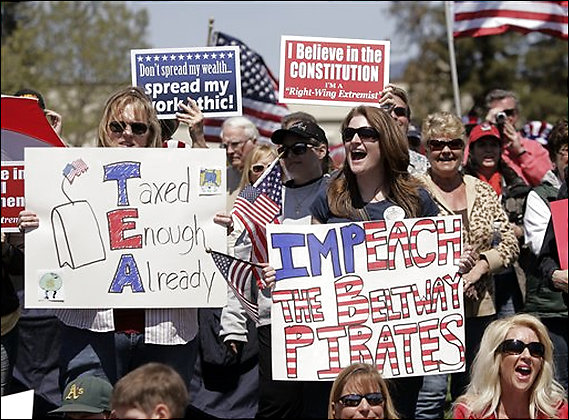Facts:
The CBO estimates the REAL cost of the Baucus bill is over 2 trillion dollars. This also assumes that congress will make cuts from medicare payments as well as the $550 billion 'extra stuff' from medicare.
The bill imposes a 40 percent excise tax on health insurance plans that offer benefits in excess of $8,000 for an individual plan and $21,000 for a family plan. Insurers would almost certainly pass this tax on to consumers via higher premiums. As inflation pushes insurance premiums higher in coming years, more and more middle-class families will find themselves caught up in the tax — providing the government with more revenue.
At the time of the analysis, the Baucus plan held that if you have an insurance plan with a high premium (exceeding $8,000 per individual or $21,000 per family), your insurance company would pay a tax of 35 cents for every dollar that your plan exceeds the threshold.
Sound good? Guess what they don't pay it. They transfer part of it to you. through, higher premiums. Which means higher tax on them which they still transfer to you.
The analysis by the Joint Committee on Taxation concluded that tax payments would indeed rise. And it found that the middle class would be stuck with the tab.
The report projected that the excise tax would raise about $52 billion in 2019. Of that, about $8.9 billion would come from taxpayers with incomes of less than $50,000; about $19.4 billion from taxpayers with incomes between $50,000 and $100,000; and about $17.4 billion from taxpayers with incomes between $100,000 and $200,000.
Add those up, and you see that about 87 percent of the revenue in the original Baucus proposal to finance Obamacare would come from individuals with incomes of less than $200,000.
Baucus and the Senate committee have since upped the proposed tax to 40 percent, and the trigger thresholds to $9,850 and $26,000, tweaks that shouldn't change the basic thrust of the story....
The remarkable thing is that this revenue comes from low- and middle-income people who already have insurance. Many members of organized labor have these "gold-plated" plans. And they would be worse off, not better, because of Obamacare.
""Greg Mankiw's Blog
Subscribe to:
Post Comments (Atom)



















And this furthers the argument for a public option. There is no real market within the current health care industry, so to force premiums back down you add a competitive player to the equation. As more and more people enroll, costs are driven down because of cost-sharing over larger portions of the country. But that's basics without numbers. Check page 3 of the latest CBO report on the Baucus amendment. I'm confused where you're getting your numbers from.
ReplyDelete